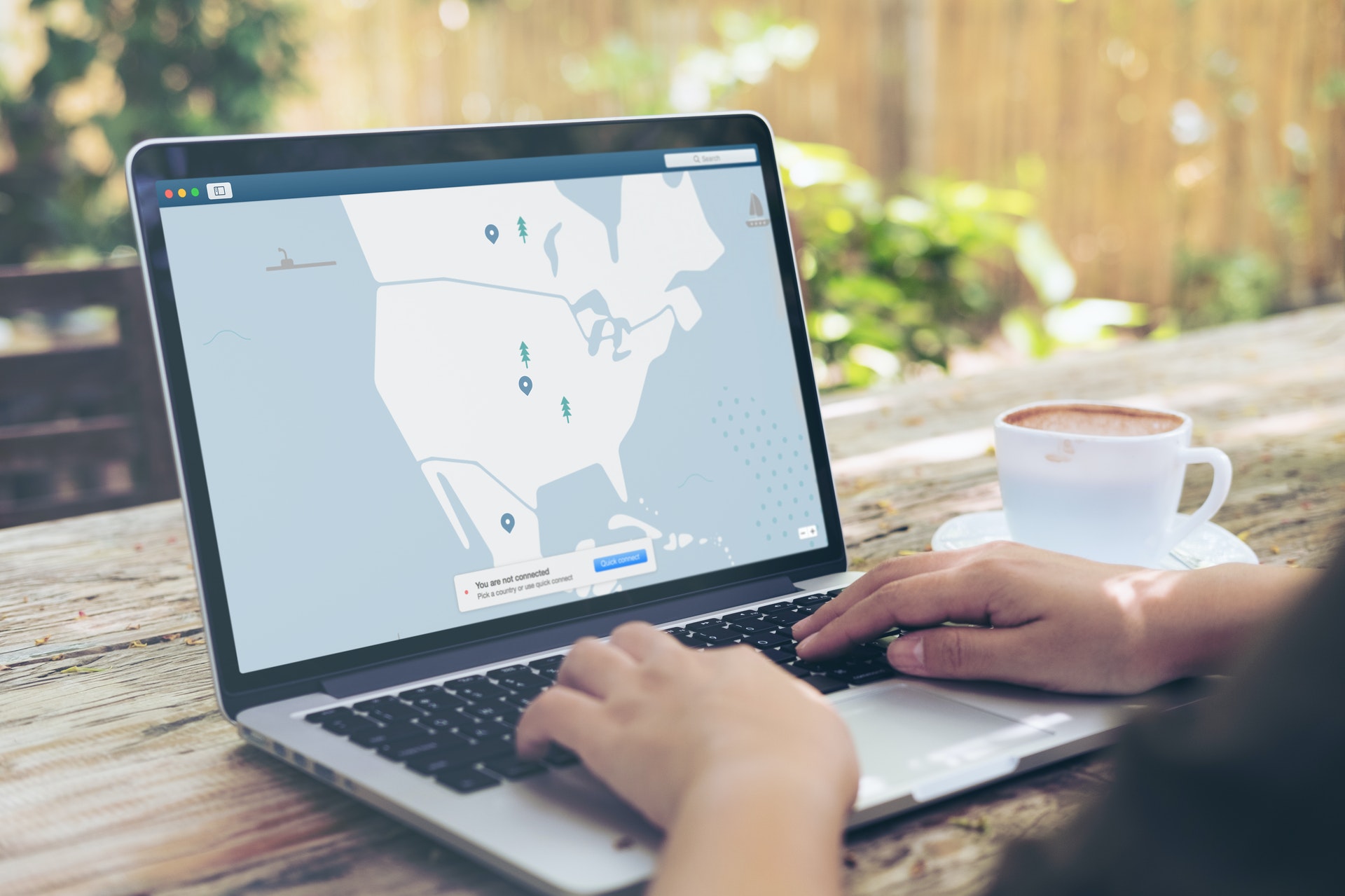A secure Virtual Private Network (VPN) connection could ensure your computer’s security if you regularly work remotely. For example, it can help to stop others from using public Wi-Fi networks to steal your information when you’re connecting to a company server or checking emails at an Internet cafe.
It could even enable you to access websites that are blocked or restricted depending on your place of work or geographical location.
How does a VPN work?
A VPN service encrypts your private network traffic before it leaves your device, adding a layer of security to all the data you send online. This makes public Wi-Fi networks more secure and stops users or hackers from tapping into your private network while you’re working remotely.
It also works to get around restrictions placed by websites on particular countries – so you can still watch US Netflix in the UK, for example. If you’re accessing confidential data from your company’s server, you can also use a VPN to prevent others from seeing what you’re doing online.
Isn’t basic cyber security hygiene enough?
Yes. But you should be secure regardless of the site or service you use since hackers can access your information even if you’re not connected to a public Wi-Fi network.
VPNs encrypt all data that travels between your device and the VPN server, ensuring no one can see what sites you are visiting or content being downloaded.
In addition, having an extra layer of security online can ensure no one can spy on or steal any valuable login information, such as credit card, login details, or bank account numbers. This extra layer provides an important assurance to those making regular transactions or frequently using gaming sites. Indeed, keeping accounts safe from hackers in the gaming world has been a priority for a number of years.
It’s essential to choose the VPN provider carefully though, since some free options won’t necessarily protect your privacy as well as paid-for services might.
How do I set up a VPN?
Setting up a VPN is relatively straightforward. First, you’ll need to sign up for an account with the service provider, then download and install the software on your device – this usually takes just a few minutes. Most VPN providers offer easy-to-use apps that allow you to set up and use their service on almost any device without the need for any technical knowledge.
VPN security: What to look for
1. Privacy policy
This should be easily accessible from the VPN’s website, or in its bundled documentation. Look out for a clear and detailed explanation of what information is tracked and stored by the service, including browsing data and metadata.
2. Logging policy
Logging policies are largely the same for both paid and free VPNs, but it’s important to be aware of what information is being tracked by your provider. Many will keep some connection logs even if they don’t keep browsing history and other details.
3. Number of devices allowed
Some free VPN services allow you to use the service on only one device at a time. This can be frustrating if you want to protect your laptop, phone and tablet with just one subscription – in this case, consider opting instead for a service that allows you to cover multiple devices with a single account. You can usually upgrade to a paid service at any point if you need more than one device covered.
Final thoughts
While you might be perfectly capable of keeping yourself safe when you’re using public Wi-Fi, a VPN can help secure your connection against hackers, identity thieves and other cybercriminals.

